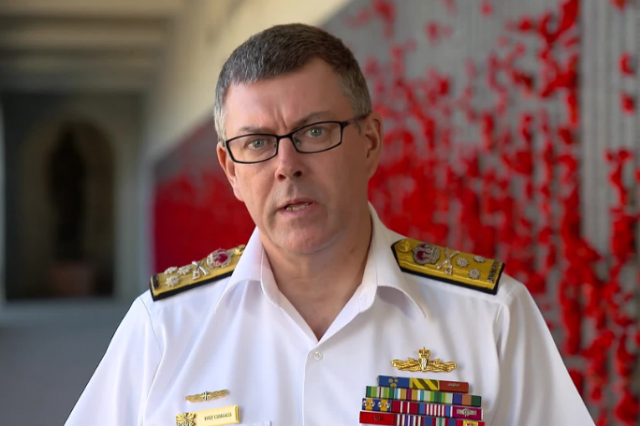
For well over three years now the ADF has been engaged in operations in the Middle East in the fight against Daesh.
Our forces have acquitted themselves exceptionally well. The strike component of the Air Task Group recently completed its mission and returned home after flying for more than 21,000 hours in 2,700 sorties over Iraq and Syria. They made a tangible difference in the fight.
They, and the broader coalition, were supported by the KC-30 air-to-air refueling tanker and the E7-A Wedgetail airborne early warning and control aircraft.
The government has decided that the KC-30 and E-7 will remain in theatre for the time being. I was lucky enough to complete a 14-hour E-7 mission over Iraqi airspace last year and was able to see firsthand not only the amazing capability that we have in this aircraft and its people, but also the complexity of the battlespace that they were operating in.
In Iraq itself, the Special Operations Task Group’s advise-and-assist mission to the Iraqi Counter Terrorism Service was crucial in a number of key fights, particularly in the liberation of Mosul.
At Taji we have around 300 people who have trained over 30,000 members of the Iraqi security forces in the Building Partner Capacity mission in conjunction with our Kiwi cousins.
Again, it was good to be able to see firsthand what both of these teams have been up to—both still have work to do and continue to add value.
Afghanistan, in particular, remains challenging. While the Taliban is still considered the largest threat, Islamic State Khorasan Province is fighting for a foothold.
Our contribution to the NATO-led mission there is focused specifically on training, advising and assisting the Afghan forces to defend their country from these threats.
You would well know that Australia’s Middle East presence includes a maritime component to our operations there.
Our navy has had a near continuous presence in that region since 1990, with our ships proving to be a potent force in providing maritime security and contributing to combined counter-terrorism, counter-piracy and counter-narcotic operations.
In the Arabian Gulf we continue to make progress. Over the past two months our frigate HMAS Warramunga, the 66th individual ship deployment since 1990, has in her short time on station continued the work of her predecessors in seizing and destroying narcotics valued in excess of $1 billion—a significant hole in terrorist funding streams.
We have contributed to two UN missions—UNMISS in South Sudan and UNTSO in Israel—as well as the Multinational Force and Observers in the Sinai. These operations don’t get much press but they’re important contributions to peace and security in the international system. They all have their own unique challenges, and they all test our people in challenging conditions.
Closer to home, we’ve deployed to the Philippines to assist in blunting the efforts of Daesh-affiliated terrorists to establish a foothold in our region.
Last year we deployed two AP-3C Orion aircraft to the Philippines to assist with the fight around Marawi in the southern Philippines to prevent Daesh from establishing themselves in our region.
For the past few months we’ve had mobile training teams from the army and navy working with our Philippine Armed Forces partners across a number of disciplines to reinforce their maritime security and counter-terrorism capabilities.
Our support to Australia’s Antarctic mission is something that the C-17’s capability has allowed us to ramp up in recent years. Operation Southern Discovery is the ADF’s contribution to the Australian Antarctic Division’s programs in the Australian Antarctic Territory. I was lucky enough to see the professionalism of our C-17 crews and some of our deployed naval personnel serving in Antarctica late last year. It’s easy to take what we do for granted sometimes, but watching the young team who flew us down to the ice was quite inspiring as they worked through the range of potential challenges on what isn’t your standard flight between domestic airports!
While on the topic of C-17s, only yesterday we deployed a RAAF C-17 to Tonga to take humanitarian aid supplies, as well as DFAT and Defence personnel, to assist in the immediate aftermath of Tropical Cyclone Gita.
We’ve also maintained a very busy exercise and deployment program across the Indo-Pacific, including our largest coordinated maritime task group deployment in many years—Indo Pacific Endeavour 2017.